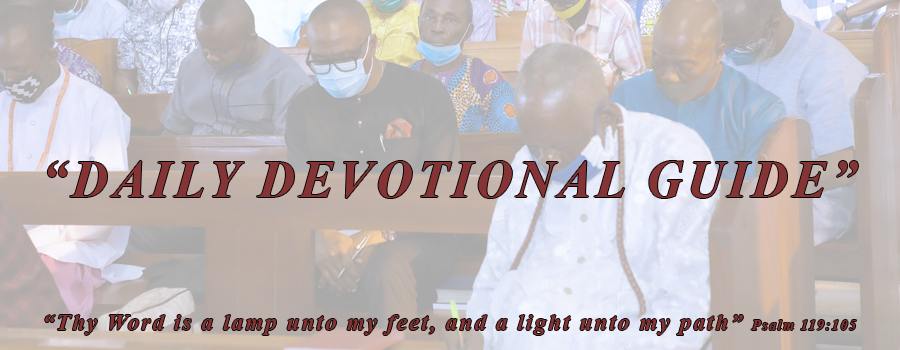Theme: The Vice of Slander
According to Merriam Webster’s Dictionary, slander is the utterance of false charges or misrepresentations which defame and damage another’s reputation Encarta Encyclopedia says slander is the use of the spoken word to injure another’s reputation, as distinguished from libel or written defamation. Statements considered slanderous include calling an individual a forger or murderer; saying that an individual is suffering from an offensive disease, such as leprosy or syphilis; or calling a doctor a quack. Some use false representations of situations and persons to supplant the upright and to get the favour of those in authority.
It is uncharitable and wicked to make a false accusation against someone in order to put him into trouble or present him in a bad light before people. Those who spread injurious accusations knowing it to be false or without hearing the side of the accused person is just as guilty before God. People of God must avoid the vice of slander. One who is in authority should not tolerate those who slanderer people before them, just to supplant them and secure positions for themselves and their children or cronies, else else various vices will take root among those under him and his administration would be in peril. “If a ruler hearken to lies, all his servants are wicked.” (Proverbs 29:12) It is important to examine the problem of slander in the light of the Scriptures.
Text: “Seeing thou hatest instruction, and castest my words behind thee. …Thou givest thy mouth to evil, and thy tongue frameth deceit. Thou sittest and speakest against thy brother; thou slanderest thine own mother’s son.” – Psalms 50:17-20.
Comment: A slanderer is one who utters false or malicious statement, tale or report designed to injure the reputation of another person. In Biblical terms a slanderer is a false accuser. The law of God is that “Thou shall not bear false witness against thy neighbour.” (Exodus 20: 16) The fact is that some people take pleasure in deliberately misrepresenting other people. For instance when King David fled from his son Absalom who had raised an army to overthrow him, Ziba his Caregiver, met the king on the way and told him that his master had stayed back at Jerusalem because he hoped that the kingdom would be restored to him. Annoyed, King David had directed that Ziba should inherit Saul’s property. It was when the king returned to Jerusalem and saw Mephibosheth himself that he found out that it was Ziba who failed to facilitate his master’s movement. What Ziba told the king therefore was a lie, a slander, meant to present a bad picture of Mephibosheth to King David. – 2 Samuel 19:24-30.
People have had their homes broken, some have lost their jobs and others killed because of false accusations “Whoso privily slandereth his neighbour, him will I cut off: him that hath an high look and a proud heart will not I suffer.” – Psalm 101:5.
Theme: COMMENTARY ON HEBREWS 11:32 - 40
Text:“For Zedekiah king of Judah had shut him up, saying, Wherefore dost thou prophesy, and say, Thus saith Jehovah, Behold, I will give this city into the hand of the king of Babylon, and he shall take it.” – Jeremiah 32:3.
Comment: Because the king and people of Judah had given themselves to the worship of the devil, God Almighty used Jeremiah the prophet to warn them, telling them that if they would not repent, He would make Jerusalem and the temple they took pride in to suffer the fate of Shiloh, where the name of God was in earlier times before it was destroyed and abandoned. (Joshua 18:1; 19:51; 1Kings 14:2.) For warning the people against sin the leaders determined that Jeremiah must die. (Jeremiah 26:1-10) However, some of the elders, together with Ahikam, an officer of the king, intervened to prevent them from their wicked plot.
Again, when the Chaldeans besieged Jerusalem, Jeremiah was instructed by God to tell them to submit to their rule to avoid death and destruction. This was seen as treason for which the leaders of the people convinced King Zedekiah to cast Jeremiah into.a well. But God also delivered him. When we stand up for the truth, even in the face of danger, God will give us victory in the end. St. Paul in his writings recalled God delivered them “from so great a death, and doth deliver: in whom we trust that he will yet deliver us” (2 Corinthians 1:10).. He added that God Almighty shall deliver him “from every evil work, and will preserve him unto his heavenly kingdom. – 2 Timothy 4:18

